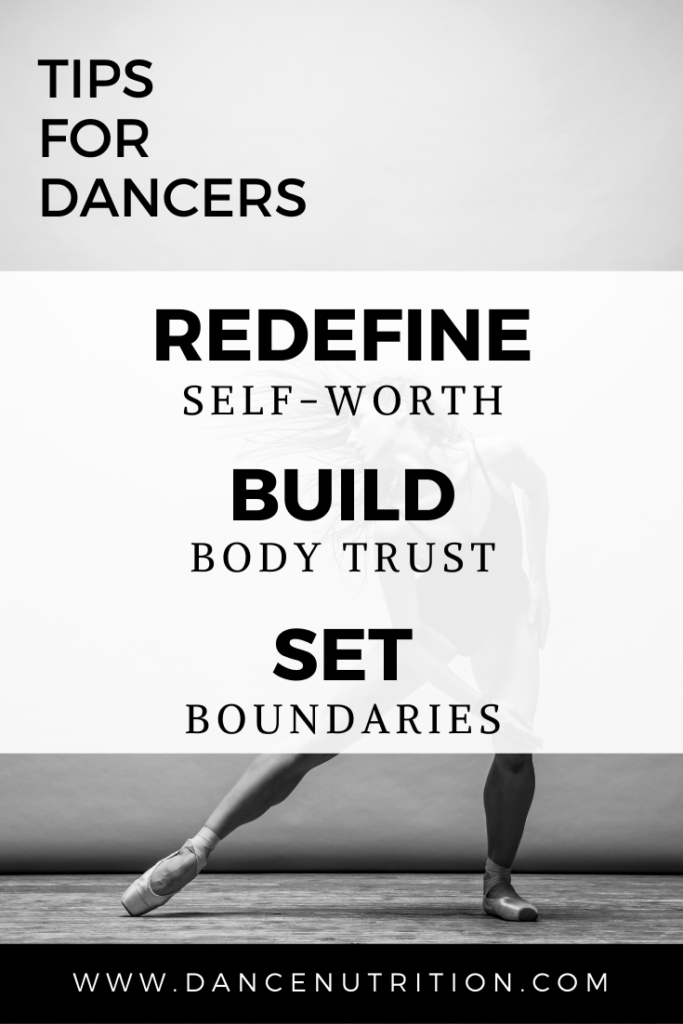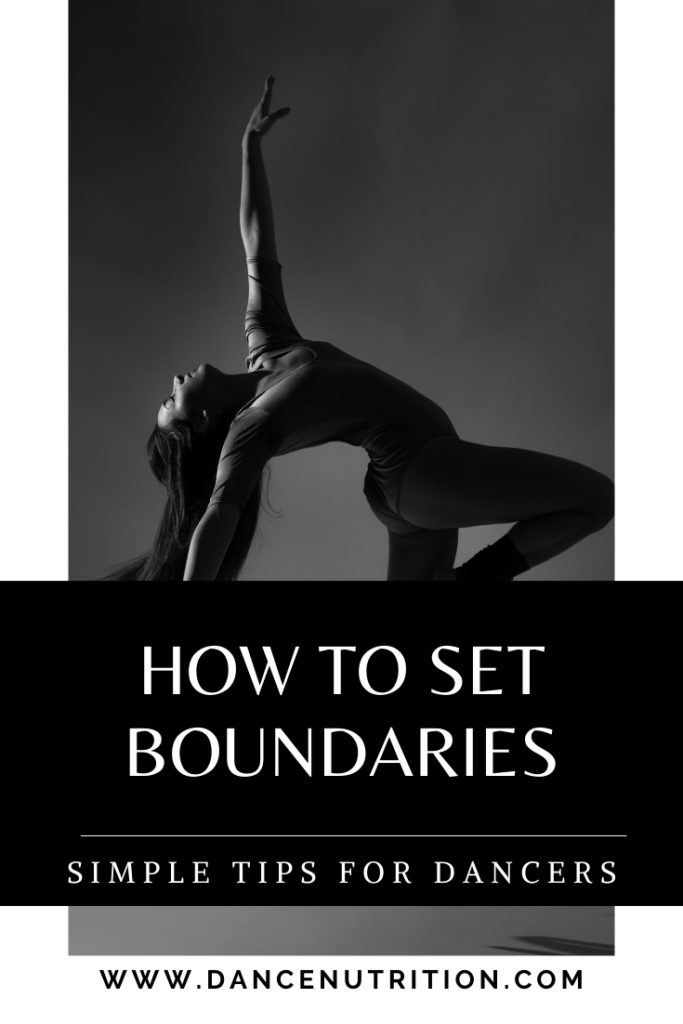Setting boundaries is essential for safeguarding our mental and emotional well-being, especially when it comes to our relationship with food. In a previous article, we explored how to navigate diet talk and triggering language and walked through sample scenarios for handling these conversations when they arise. But what happens when the conversation becomes too overwhelming to manage? How do we protect ourselves when diet culture feels impossible to escape?
With many studios flooded by messages from dancer diet culture, boundaries get blurred or ignored. We’re taught that our performance potential is tied to what we eat and the size of our bodies. This morality around food and body image is the foundation of diet culture, and it affects every aspect of our lives— especially as we scroll through social media and compare ourselves to others.
In this article, we’ll dive into what it means to set boundaries and why your self-worth plays a crucial role in your ability to protect yourself from the harmful effects of dancer diet culture.
When did we lose our boundaries?
As a mom, I’ve witnessed my children set boundaries at an early age— practicing independence with the simple power of “no.” Whether it’s refusing to eat a certain food or insisting on doing things their own way, my kids are naturally building their sense of self and their ability to set boundaries.
But with age comes experience. We learn what’s “good” and “bad” for performance— often in pursuit of an “ideal.” We’re taught to ignore our hunger cues in favor of following “rules,” and it can become difficult to trust our bodies. Instead of listening to ourselves, we rely on external measures— like calorie counts or restrictive diets— that leave us second-guessing every food choice.
For dancers, this influence is even stronger. Authority figures such as teachers, choreographers, and directors may unintentionally (or intentionally) perpetuate unrealistic body standards. These individuals, who are often highly respected in the dance community, may push their own biases about weight, food, and body image onto dancers. But it’s important to remember that even those in positions of authority are people too, and they may not have the education or understanding of weight science and nutrition that we need to make informed decisions about our health.
How Do We Rebuild Boundaries?
Like a child testing their limits by saying “no,” you can reclaim your ability to set boundaries— regardless of age or external pressures. It’s not about rejecting others; it’s about protecting your mental and emotional health. Here’s how to start:
#1: Recognize Your Right to Say No
It’s okay to step away from a conversation if it makes you uncomfortable, especially if it involves triggering topics like dieting or body talk. You don’t need to justify or explain yourself to anyone. Your boundaries are valid.
#2: Communicate Your Needs with Confidence
If you find yourself in a conversation about dieting or weight loss that you don’t want to be part of, calmly exit the situation. If you feel compelled to explain, you can acknowledge the other person’s feelings while affirming your boundaries. For example:
“I understand why you feel upset with me…” (recognizing their disappointment). You are allowed to have different opinions than me and it’s cool that you know what you want…” (validating their feelings). “But, I know what I need right now to continue this road towards a healthier relationship with food.”
#3: Honor Your Journey
Your self-worth is not determined by the food you eat or the size of your body. It’s about honoring your body’s needs and your performance goals. If you’re struggling with restrictive eating or body dissatisfaction, seeking professional support is crucial. A Registered Dietitian Nutritionist and mental health therapist can help you rebuild a healthier relationship with food and body.
Rebuilding Self-Worth: The Key to Setting Boundaries
The ability to set boundaries is directly tied to your sense of self-worth. If struggling with body dissatisfaction or a poor body image, work on redefining your worth beyond physical appearance. You are worthy of nourishment and deserve to live in a body that is respected and cared for— not judged or micromanaged.
Building boundaries is a process. It requires consistent self-reflection, self-compassion, and a willingness to challenge the societal norms that have shaped our relationship with food. Nourish The Healthy Dancer® is a course I offer for dancers looking to learn more about building body trust and confidence. A few starting points to consider?
- Pause before reacting: When faced with diet talk or body-focused conversations, take a moment to check in with yourself. Do you feel uncomfortable or triggered?
- Practice saying no: Start small by setting boundaries in everyday situations, whether saying “no” to a social media trend or rejecting an unsolicited diet tip.
- Reassess your values: What do you value most about your performance? How can you make decisions that align with your core values, rather than external expectations?




